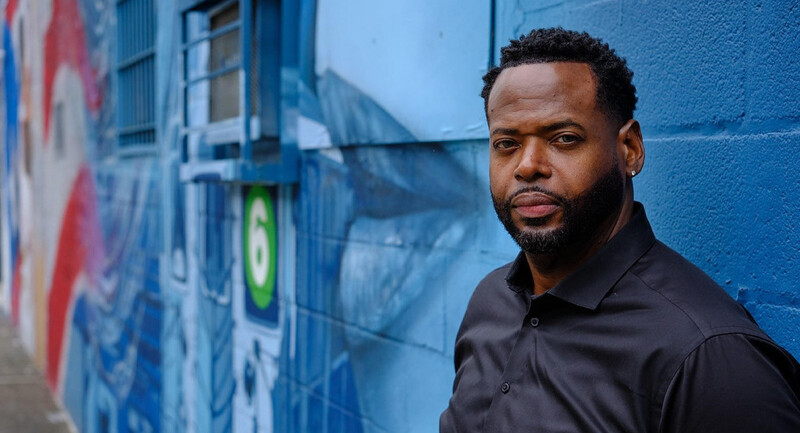Figuring out what every school community needs to thrive is complex work. Lateshia Woodley, a school leadership and transformation expert, knows a thing or two about the individualized approaches necessary to support students. For decades, Woodley has worked with what she calls “at-promise” public schools in places like Atlanta, Georgia, and Kansas City, Missouri, implementing support programs and school improvement initiatives tailored to communities.
From whole-child and social-emotional learning frameworks to discipline and counseling changes, Woodley’s time as a principal and assistant superintendent has transformed students’ school experiences. Woodley, who will present at ASCD’s 2023 Leadership Summit in October, spoke with ASCD about navigating leadership challenges, improving dropout rates, and cultivating joy and hope for students and leaders alike.
You call yourself a “lead dream builder.” What does this mean?
Throughout my entire career, I’ve worked with at-promise communities that many people thought were not going to be successful. Students come from backgrounds similar to my own, from disinvested communities. They felt like it wasn’t going to get any better. I’ve experienced many dream killers along my own journey. My hope is to be a dream builder for staff, students, and families. I put supports in place to let them know that their situation does not define their destiny.
When I started at The New Schools at Carver in Atlanta [as dean of academics], they had a 30 percent graduation rate; within four years, we had a 90 percent rate and were sending students to Ivy League schools. I also led McClarin Success Academy [as principal] in Fulton County, Georgia; we moved the graduation rate from 19 percent to 75 percent within four years. It’s because we were able to look at what students, families, and communities needed and develop wraparound services. The term “lead dream builder” comes from that work. You’ve got to be that light and advocate for what students and families need to thrive. All communities have what it takes to be successful and have the tools to heal themselves if you give them the supports.
What was your journey into leadership?
I grew up in a small town and my mother was a teen mom, so my grandma was my guide. We had to navigate the world through a lot of disadvantages, and I had educators who did not see me. In high school, I had to drop out of activities, and no one checked to see what was going on. I was depressed, but I made straight As. Because I wasn’t a problem child, I never got that circle of support that I now provide to students and families. My pain was invisible to them. I never wanted a child to experience that invisibility again. If I can survive what I did, I can give people hope to be able to do that themselves.
You’re well-known for your work on successful dropout prevention—helping students stay in school and graduate. What’s one piece of advice for leaders who want to do the same?
One thing I’ve done in every new situation is what I call a site assessment. You have to check the heartbeats of your school and students. When I started, I met one-on-one with every student and family in my school. That took working weekends and summers and long hours to make sure that I designed my programming around students’ needs.
Every community has its own DNA. Zip code is not a determining factor of intelligence.
We think we know the answers based on past successes, but every community has its own DNA. Take the time to do that needs assessment and personalize the experience to meet those needs. For example, in Kansas City, Missouri, my school district had been unaccredited for four years. We were able to get that accreditation back and even presented at the White House about our SEL performance. Zip code is not a determining factor of intelligence.
Your session for ASCD’s Leadership Summit is on navigating “sling shots.” What are the common sling shots for educators?
Leadership is a lonely place. Whether it’s the principalship or a district office, you’ll find yourself navigating a lot of sling shots [the challenges educators will face during their careers]. I’ve experienced microaggressions and internal drama from parents and school boards, and burnout is real. There’s a lot of moving parts, whether it’s having critical conversations with employees or dealing with new initiatives.
I think people will walk away with hope that they’re not the only ones dealing with challenges. I have a doctorate in counseling psychology and education experience, and that has proved to be my secret weapon in dealing with slingshots. You need to think about the why behind how people are responding. You also have to center on your purpose behind this work. Be grounded in who you are and what you stand for.
What is one book that has been inspirational to you?
One book that led me to do some work in Kansas City Public Schools recently was Monique Morris’ Pushout. She writes about how Black girls are discriminated against and “adultified,” which led us to critical work with equity audits. We were experiencing some of those same disparities. I was able to dismantle the discipline structure and remove the ability to suspend students in elementary school who weren’t a harm to themselves or others.
What is your favorite part of the job?
There are going to be ups and downs in every career, but being the deciding factor on whether a child can be successful in life is the most rewarding experience. I love being able to give educators strategies to transform their schools and classrooms and districts, to break things down with needs assessments.
What is the data telling you about what is going on, and how do you address those needs? We are data-rich but knowledge-poor; we often don’t know what to do with all the data. I go into buildings and do culture and climate walkthroughs with leaders. Coast to coast, many of the challenges around meeting social-emotional needs are the same.
Editor’s note: This interview has been edited for space.
2023 ASCD Leadership Summit
Join Lateshia Woodley and other inspiring speakers at our three-day summit, designed to give you and your leadership team the skills and strategies you need to lead with confidence.
Join Lateshia Woodley and other inspiring speakers at our three-day summit, designed to give you and your leadership team the skills and strategies you need to lead with confidence.








